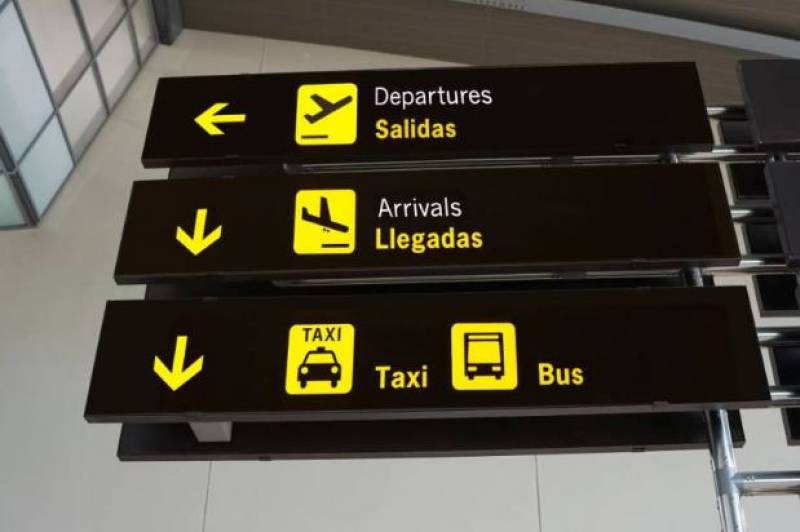Date Published: 17/12/2024
Major changes to travel in Europe coming in 2025
ARCHIVED ARTICLE -
From new tourist taxes to Golden Visas and tougher border controls, the EU’s travel landscape will be drastically different next year
As 2024 draws to a close, the European Union (EU) is gearing up for a series of significant changes that will reshape travel and policy landscapes in the coming year. While many important decisions and developments were made in the last 12 months, the ink is now dry on several major regulations, and 2025 is the time for action.
From the expansion of the Schengen Area to the introduction of advanced border control systems in
Spain and elsewhere, 2025 promises to be a transformative year.
Here’s a comprehensive look at the key updates:
New border systems: EES and ETIAS
Two groundbreaking systems are set to revolutionise border management in the EU in 2025: the Entry/Exit System (EES) and the European Travel Information and Authorisation System (ETIAS).
Once it’s up and running properly, this system will affect all travellers, regardless of whether they are permitted visa-free entry to the Schengen Area or not. It will replace passport stamping with a more streamlined border crossing and it will all be automated, so travellers won’t need to do anything before their trip.
Both systems aim to enhance security for the EU and its visitors.
Bulgaria and Romania join the Schengen Zone
In a long-awaited move, Bulgaria and Romania will become full members of the Schengen Zone on January 1, 2025. While both countries are already part of the Schengen area for air and sea travel, this expansion will eliminate internal border controls, facilitating smoother movement for residents and visitors alike.
Greece expands Golden Visa programme, Spain may terminate it
Greece plans to diversify its Golden Visa Programme next year by introducing a new investment pathway focused on start-ups. Essentially, those who invest in a brand new business or company may apply for a Golden Visa, but there are several conditions attached.
To qualify, applicants will need to invest a minimum of 250,000 euros in start-up businesses listed on the National Register, hold no more than 33% equity, create at least two jobs within the first year and maintain the existing workforce for five years.
This new option is pending parliamentary approval and is expected to launch at the start of 2025.
The Congress of Deputies has approved a bill to terminate this option, effective January 2025. However, the Spanish Senate's veto has introduced uncertainty and the final outcome remains to be seen.
New and increased tourist taxes
Several European cities are set to introduce or hike
tourist taxes in 2025:
- Madeira, Portugal: Starting January 1, tourists over 12 years old will pay a 3 euro fee to hike any of the region’s 30 trails. Violators will face a 50 euro fine. This charge aims to protect the island's natural beauty and enhance visitor experiences.
- Évora, Portugal: The city plans to introduce a tourist tax in early 2025, with the exact amount yet to be determined. Revenue will support waste management, heritage preservation and tourism promotion.
- Venice, Italy: The current 5 euro tourist tax will remain in place, but last-minute visitors will pay 10 euros on certain days of the week from April 2025. This increase targets overtourism and improves local quality of life.
- Greece: The daily tourist tax will rise from 50 cents to 2 euros, and from 1.50 euros to 8 euros during the high season (April to October). Cruise ship taxes will also increase.
These are only the official taxes which have been announced as of December 2024, but it’s likely that other EU cities will follow suit in the coming months.
France tightens residence permit criteria
France will implement stricter rules for multi-year residence permit applicants in 2025.
Foreigners seeking multi-year residency cards (Cartes de séjour pluriannuelles) will need to demonstrate A2-level French language proficiency. For ten-year permits, the requirement will be a B1 level.
The effective date for these changes is yet to be announced.
EU citizens need ETA for UK travel
Starting April 2025, EU citizens travelling to the UK without a visa will need an Electronic Travel Authorisation (ETA), costing 11 euros, ahead of their trip.
Eligible applicants can start applying from March 5, 2025.
This requirement applies to all EU passport holders, including infants and children, who do not have a visa or permission to live, work or study in the UK.
The ETA will be valid for two years, during which tourists from the EU will be allowed to travel to the UK as many times as they want, provided that they do not stay more than 60 days without returning to their home country.
You can find more information on important travel rule changes and Schengen updates coming in 2025 on the official
SchengenVisaInfo website.
Image: Archive
article_detail











